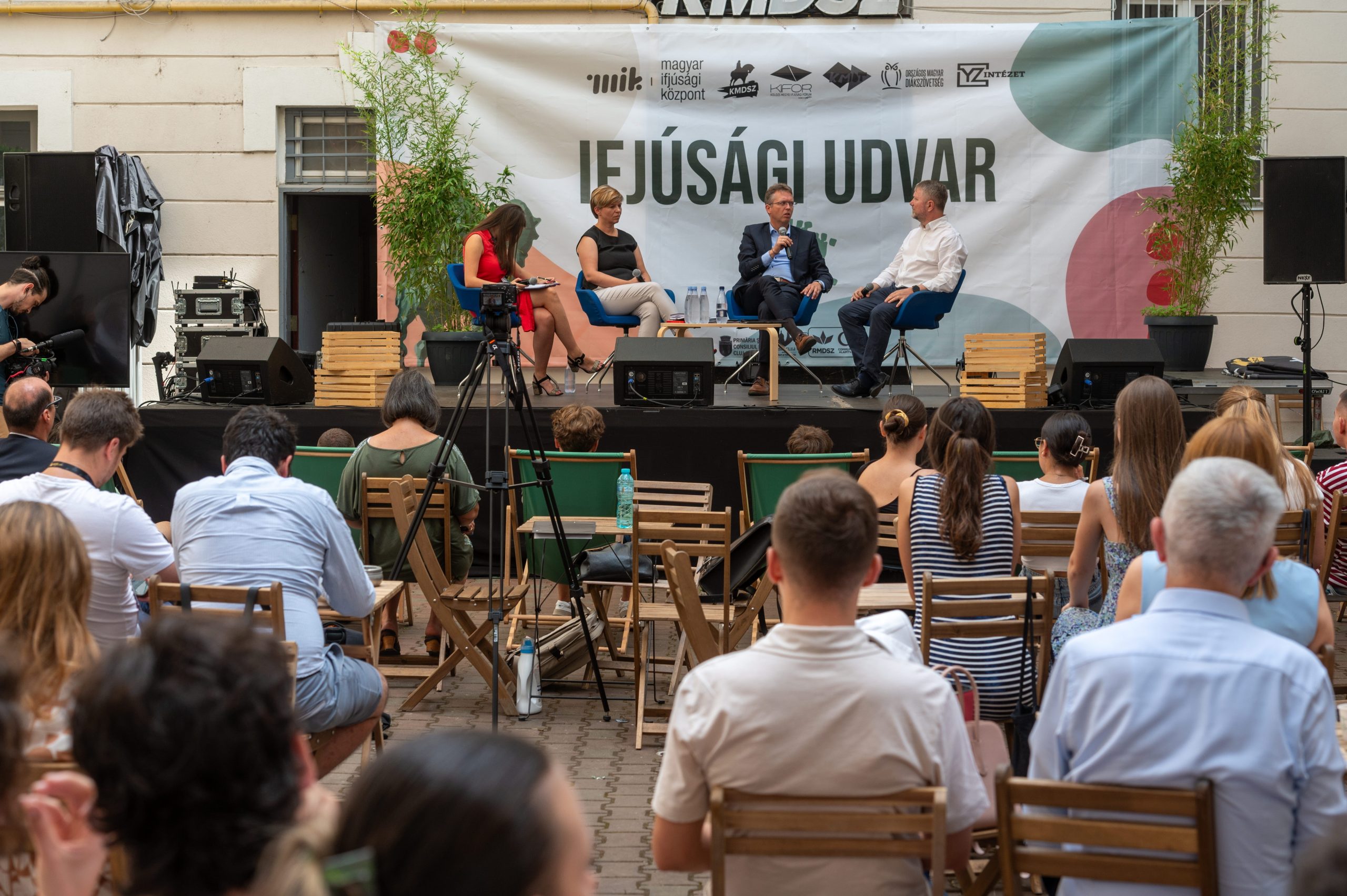
RMDSZ is planning Romanian camps and exchange programs to help Hungarian students.Continue reading

The Hungarian model of higher education and vocational training must be ensured throughout the Carpathian Basin, including Transylvania: we need competitive universities with a Hungarian identity, as well as a network of vocational colleges and a scholarship system that strengthens the stay of young people in their homeland, Balázs Hankó, Minister of Culture and Innovation, said in Cluj-Napoca (Kolozsvár, Romania) on Thursday.
The minister was taking part in a round table discussion on “Educational opportunities without borders – domestic validation and training in Hungary.” The other two guests at the panel discussion, held at the 15th Hungarian Days in Cluj-Napoca, were Veronika Varga-Bajusz, State Secretary for Higher Education, and Ödön Szabó, Member of Parliament and Vice-Chairman of the Education Committee of the Romanian House of Representatives.
Balázs Hankó pointed out:
Transylvania also needs a skilled workforce, and in order for the region to have a competitive youth with a Hungarian identity, scholarship schemes must be paired with the forms of education, and the existing ones must be strengthened.”
He also said that Hungary should only provide young people from abroad with training that fills a gap, and that a system of scholarships should be set up to support them in returning to their homeland after completing their studies. The minister noted that a scholarship scheme should also be developed for young Transylvanian Hungarians studying in Romanian in Bucharest, Brasov (Brassó) and Timisoara (Temesvár), to encourage them to return to their homeland and use what they have learned for the benefit of their own community.
State Secretary for Higher Education Veronika Varga-Bajusz stressed that it remains very important to strengthen the higher education in the Carpathian Basin.
To this end, the Makovecz program is being run, developed on the basis of proposals from institutions abroad, in such a way that there is a living link between the institutions and real cooperation.
She said that with the universities’ model change, Hungarian institutions have become the driving force of the regions, and students are able to find a job thanks to the contacts they have made here.
Speaking about higher education in Romania, Szabó Ödön MEP, education policy expert of the Democratic Alliance of Hungarians in Romania (RMDSZ), noted that the legal framework and the range of education on offer had been constantly expanding over the past 30 years.
Moreover, the new education law adopted last year applies “positive discrimination” to minority students, with special places reserved for them in universities where they cannot study in their mother tongue.
The politician added that in the next period, work should be done to implement the provisions of the law, which in Romania is “never a short journey.”
Among the challenges, he underlined that Romania lags behind the rest of Europe in terms of the number of university graduates, with only 23%, and that the Hungarian community in Transylvania is worse off than the Romanian average. He recalled that the Romanian-Hungarian border region still attracts many young Hungarians from the region to universities in Hungary, and that efforts should be made to “soften” this impact in the future. In the long term, Hungarians in Transylvania should not be left without intellectuals, he stressed.
Via MTI, Featured image: MTI/Kiss Gábor